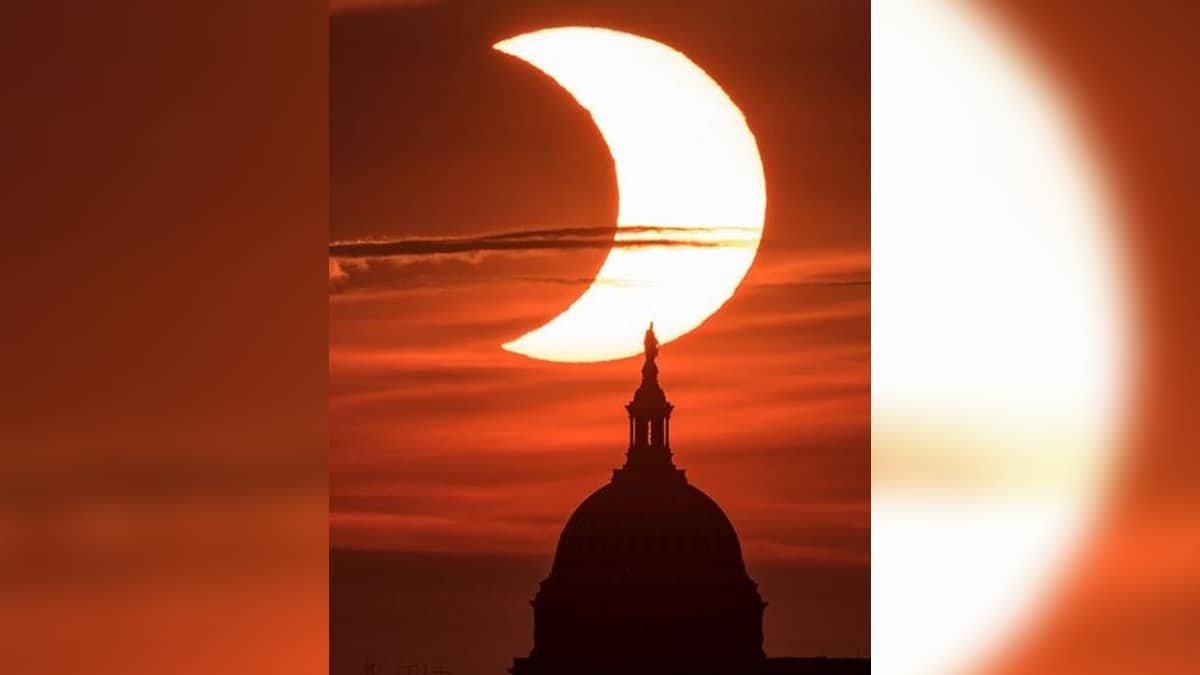NASA posted a couple breath-taking images of the annular solar eclipse as seen from the United States on its official Instagram handle, calling it a “view of a lifetime” The solar eclipse that occurred on June 10 is the first solar eclipse of this year and was witnessed in its partial form from Ladakh and Arunachal Pradesh in India, northern Europe, and the north-eastern United States. According to the Instagram post by NASA, the annular solar eclipse was visible to only those who were observing it from Canada, Greenland, and Northern Russia.
NASA’s post on Instagram comprises two extraordinary images of Thursday’s partial solar eclipse. The first one was taken from Washington, DC, with the US Capitol building in the foreground of the image, as the partially eclipsed sun lit up the sky a bright orange. The second image, equally remarkable, features the Delaware Breakwater Lighthouse against a purple and pink sky, turning orange along the vertical gradient as the moon partially eclipsed the sun.
In the caption, NASA explained the phenomenon of solar eclipses and why they occur. The caption read: “With our eyes to the skies, we felt our hearts skip a beat and we admired. A view of a lifetime. Shown here, we see a partial solar eclipse as the Sun peeks behind the United States Capitol Building and from the Delaware Breakwater Lighthouse, on June 10, 2021. Solar eclipses happen when the Moon dances in front of the Sun, from the viewpoint of our planet. A “ring of fire” or annular eclipse occurs when the Moon is near its farthest point from Earth during an eclipse, so the Moon appears smaller than the Sun in the sky and doesn’t block the whole solar disk. The “ring of fire” solar eclipse was only visible to some people in Greenland, Northern Russia, and Canada.”
There’s no denying that solar eclipses make for breath-taking visuals that are powerful and awe-inspiring at the same time. These are moments we are reminded of the remarkable nature of the cosmos, and how endlessly fascinating it is, only if one remembers to observe. Solar eclipses used to be associated with ominous occurrences and superstitions because of how intimidating the disappearance of the sun would be, in the middle of the day.
If you cannot get enough of solar eclipses and would like to marvel at more pictures like the ones NASA uploaded, this collection of images of Thursday’s solar eclipse from across the world is sure to leave you stunned. See them here.
